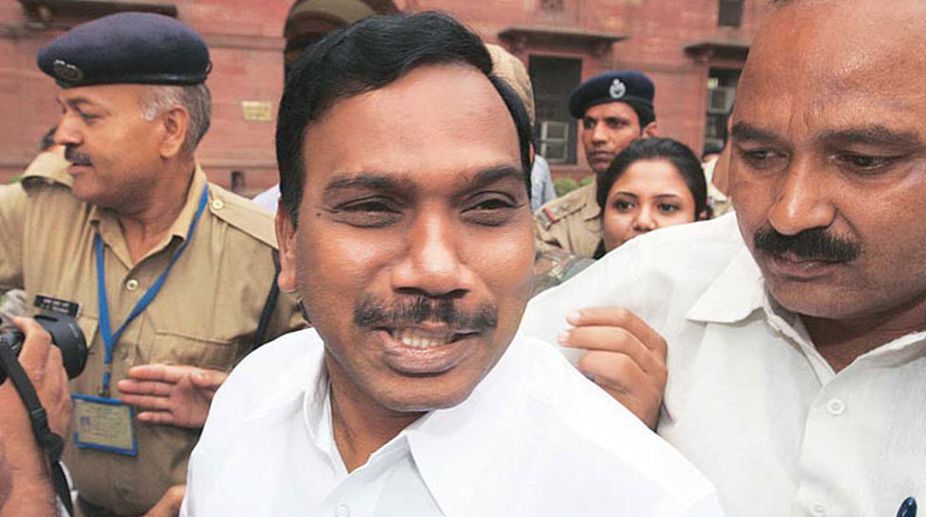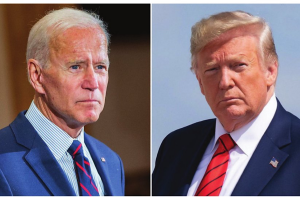The stunning verdict in the politically-sensitive 2G spectrum allocation cases acquitting ex-telecom minister A Raja and all other accused at the fag end of the year was the show stealer from trial courts in Delhi in an eventful 2017.
The failure of the prosecution in 2G cases overshadowed its success in prosecuting political heavyweights in coal scam cases in which former Jharkhand chief minister Madhu Koda was sent to three years in prison and ex-coal secretary H C Gupta was given varying jail terms in two such cases.
The outcome in the 2G matter has raised more questions than answers as special judge O P Saini, who was exclusively dealing with the cases arising out of the spectrum allocation scam for seven years, was even critical of special prosecutor appointed by the Supreme Court which has been monitoring the probe in the case in which the CAG had computed the loss of Rs 1.76 lakh crore to the exchequer.
While time will tell if Saini’s judgement will stand the scrutiny of the higher courts, the six trial courts in the capital dealt with several cases of all India significance concerning terrorism, terror funding and money laundering involving Kashmiri separatist leaders.
Besides, defamation cases involving Arun Jaitley and Arvind Kejriwal, VVIP chopper scam in which ex-Air Force Chief S P Tyagi is a prime accused and a graft case in which ex-high court judge I M Quddusi was behind bars for a a week kept the trial courts busy in the year.
The politically-sensitive Rs 3,600-crore VVIP chopper case picked up pace this year and Tyagi became the first chief of any force to be listed in a charge sheet in a high-profile criminal case.
So was the case of former Chhattisgarh High Court judge Quddusi, who was jailed for seven days in an alleged medical college corruption case.
Judge Saini not only hogged the limelight with his verdict acquitting all in the 2G cases but in the beginning of the year, he had given another shocker to the CBI by discharging another telecom minister and DMK leader Dayanidhi Maran and other accused in the Aircel-Maxis deal case which was an off-shoot of the case arising from the 2G probe.
He cleared Maran of the charges of corruption, conspiracy and money laundering by holding that allegations were based on “misreading of official files”, speculation and surmises of the complainant.
However, the court of special judge Bharat Parashar dealing with 30 cases of coal scam, kept high and mighty on tenterhooks and like last year delivered two more verdicts taking the tally of decided cases of conviction up to four.
Koda was awarded three-year jail term for corruption in allocation of a coal block in Jharkhand to Kolkata-based private company Vini Iron and Steel Udyog Ltd, along with ex- coal secretary H C Gupta, who was also given two years in jail in another coal case for irregularity in allocating a Madhya Pradesh based coal block to private firm Kamal Sponge Steel and Power Ltd.
Congress leader and industrialist Naveen Jindal also faced the court’s ire in the coal scam where a fresh charge sheet was filed against him and others for allegedly cheating the government by misrepresenting facts to get a coal block allocated in Madhya Pradesh.
Another politician, Dilip Ray, who was a union minister in the earlier NDA government, was put on trial in a coal scam case pertaining to alleged irregularities in the allocation of a Jharkhand coal block in 1999.
Among other high-profile cases which kept the courts busy were those involving former Himachal Pradesh chief minister Virbhadra Singh and Delhi Chief Minister Arvind Kejriwal, who had a tough time in criminal defamation complaint filed against him by Union minister Arun Jaitley.
While Singh and his wife appeared as accused before a special court in a nearly Rs 10 crore DA case, Kejriwal faced several allegations apart from defamation, including irregularities in granting contracts in for roads and misleading people about municipal elections.
Another political case that hogged the limelight with the arrest of T T V Dhinakaran, now elected MLA from the erstwhile constituency of ex-AIADMK supremo J Jayalalithaa, was in connection with an Election Commission bribery case related to use of party’s ‘two leaves’ poll symbol.
Besides these, several terror-related matters also took the front seat with the courts sending behind bars Kashmiri separatists and several other terrorists.
In several terror funding-related cases involving Kashmiri separatists, Shabir Shah, Hurriyat leader Syed Ali Shah Geelani’s son-in-law Altaf Ahmed Shah and globally-wanted terrorist Syed Salahuddin’s son Syed Shahid Yousuf, were sent to jail for their alleged roles.
During the year, the courts also remained seized of several money laundering cases involving big businessmen including controversial meat exporter Moin Akhtar Qureshi, who spent over three months in jail before he was granted the bail on December 12 in one such case.
The prosecution of black money holders, which began in 2016 post the Centre’s demonetisation move, continued this year as well with filing of charge sheets against controversial lawyer Rohit Tandon and businessmen Paras Mal Lodha and Gagan Dhawan, who faced the court’s wrath in various cases of money laundering running into hundreds of crores and illegal conversion of crores of demonetised currency notes.
Another money laundering case came to the fore with RJD chief Lalu Prasad’s daughter Misa Bharti coming under the lens after the Enforcement Directorate (ED) filed a charge sheet against her and her husband, Shailesh Kumar, in Rs 1.2 crore PMLA case.
UPA regime’s another high profile case, the Commonwealth Games (CWG) scam, also made headlines during the year when six former officials of the Organising Committee and two firms were put on trial by special CBI judge Arvind Kumar for alleged irregularities in merchandising and retailing for the 2010 mega-sporting event.











